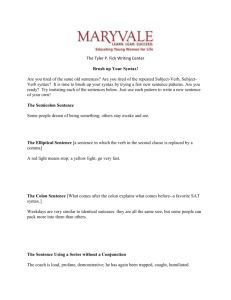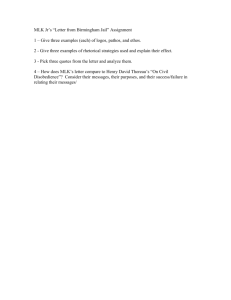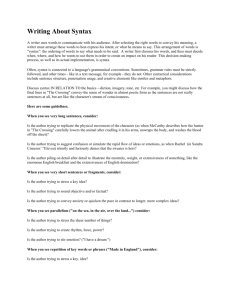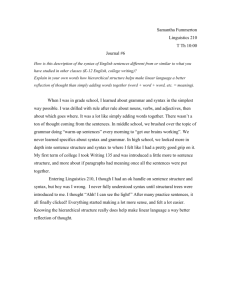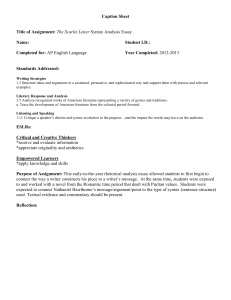1-12-15-MLK-Chunk
advertisement
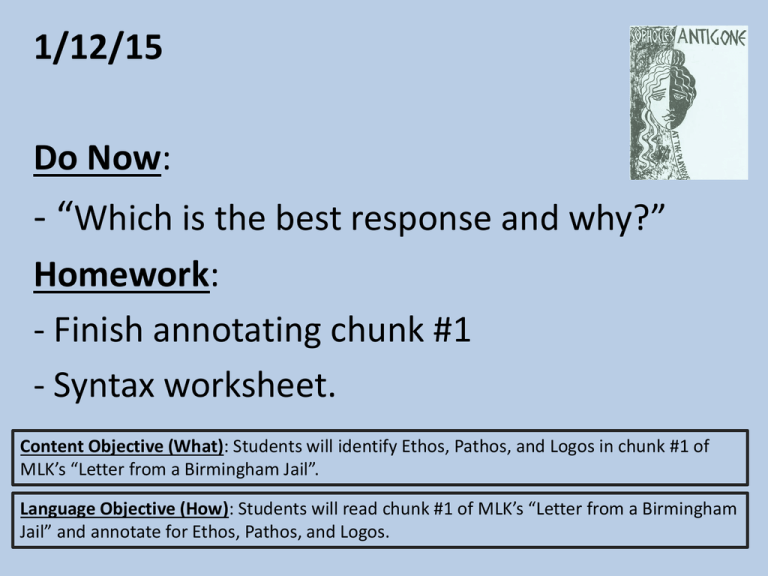
1/12/15 Do Now: - “Which is the best response and why?” Homework: - Finish annotating chunk #1 - Syntax worksheet. Content Objective (What): Students will identify Ethos, Pathos, and Logos in chunk #1 of MLK’s “Letter from a Birmingham Jail”. Language Objective (How): Students will read chunk #1 of MLK’s “Letter from a Birmingham Jail” and annotate for Ethos, Pathos, and Logos. How does the use of syntax help Severn develop her central idea? 1) “Severn uses short sentences to get more attention of the people and her use of imperative sentences helps to develop her central idea.” 2) “Syntax helps Severn because it makes the speech more put together and more persuasive.” 3) “Severn begins and ends her speech with imperative sentences to reinforce her argument. Throughout the speech she uses many short and telegraphic sentences to point out the faults we are making.” Syntax in Three Steps: Step 1: Notice it! - Look at the length of sentences, the types of sentences, and the structure within them. Step 2: Describe it! - How could you describe the structure or changes in structure? Abrupt? Plain? Chaotic? Lyrical? Jumbled? Step 3: Think about author's purpose for using such syntax? - Does the syntax reinforce the topic the author is discussing? Does the syntax reveal a tone or set a mood? A word of caution... **AVOID THE PHRASE, "The author uses syntax..."** All authors use syntax! Make sure to describe it! Syntax: Definition: the arrangement, ordering, grouping and placement of words and phrases into sentences and paragraphs Things to Consider: 1) Length of sentences: Is there a pattern in the lengths of sentences that changes at some point? Does the sentence length match the content? 2) Type of sentences: Is there an exclamation point or question mark? 3) Structure within the sentence: Are phrases similar or repeated within a sentence? Are phrased organized within a sentence in a purposeful way? Choose ONE for Claim - Support with 1-2 rhetorical strategies from Layer 2 or Layer 3 in body paragraphs LAYER 1 Ethos, Pathos, Logos LAYER 2 Diction, Syntax, Tone, Irony LAYER 3 Denotation, Connotation, Allusion, Imagery, Parallelism, Enumeration, Paradox, Rhetorical Questions, Anaphora - OR Choose ONE for Claim - Support with 1-2 rhetorical strategies from Layer 2 or Layer 3 in body paragraphs Supporting Rhetorical Devices Usually, you should NOT include these in your claim! CLAIM: The author uses__________ to support the central message that_______________. CLAIM BODY PARAGRAPH POWER COMBOS! Body Paragraphs SYNTAX Parallelism – Enumeration – Anaphora – Rhetorical Questions DICTION Connotation Denotation TONE Diction – Syntax – Connotation Denotation “Letter from a Birmingham Jail” by Martin Luther King Jr. The Letter from Birmingham Jail (also known as "Letter from Birmingham City Jail" and "The Negro Is Your Brother") is an open letter written on April 16, 1963, by Martin Luther King, Jr. The letter defends the strategy of nonviolent resistance to racism, arguing that people have a moral responsibility to break unjust laws. The letter was widely published and became an important text for the American civil rights movement of the early 1960s. - Wikipedia “Letter from a Birmingham Jail” by Martin Luther King Jr. Background: The Birmingham Campaign began on April 3, 1963, with coordinated marches and sitins against racism and racial segregation in Birmingham, Alabama. The non-violent campaign was coordinated by Alabama Christian Movement for Human Rights and King's Southern Christian Leadership Conference. On April 10, Circuit Judge W. A. Jenkins issued a blanket injunction against "parading, demonstrating, boycotting, trespassing and picketing". Leaders of the campaign announced they would disobey the ruling. On April 12, King was roughly arrested with Ralph Abernathy, Fred Shuttlesworth and other marchers—while thousands of African Americans dressed for Good Friday looked on. King met with unusually harsh conditions in the Birmingham jail. An ally smuggled in a newspaper from April 12, which contained "A Call for Unity": a statement made by eight white Alabama clergymen against King and his methods. The letter provoked King, and he began to write a response on the newspaper itself. King writes in Why We Can't Wait: “Begun on the margins of the newspaper in which the statement appeared while I was in jail, the letter was continued on scraps of writing paper supplied by a friendly black trustee, and concluded on a pad my attorneys were eventually permitted to leave me.” - Wikipedia
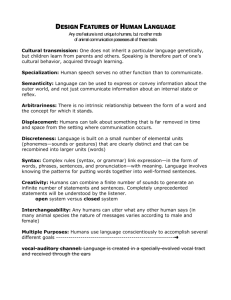
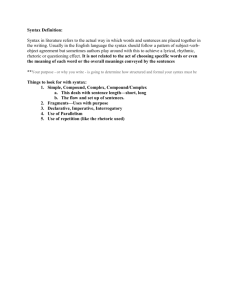
![The Word-MES Strategy[1]](http://s3.studylib.net/store/data/007764564_2-5130a463adfad55f224dc5c23cc6556c-300x300.png)
